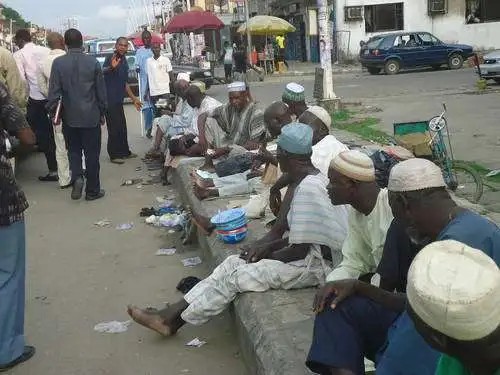A Federal High Court sitting in Abuja has affirmed the legality of the Federal Capital Territory Administration’s ongoing crackdown on scavengers, beggars and street traders, dismissing a N500 million human rights suit that challenged the clampdown.
Justice James Omotosho, who delivered the judgement on Thursday, ruled that the enforcement measures ordered by the FCT Minister, Nyesom Wike, are lawful and aligned with the Abuja Environmental Protection Act.
The court held that granting the suit—filed on behalf of vulnerable residents by a lawyer, Abba Hikima—could turn the Federal Capital Territory into “a safe haven for the destitute, vagabonds and criminal elements.”
“There is no dignity in begging as we are encouraged to work hard,” Justice Omotosho declared. “Begging, as a full-time profession, is usually a result of laziness and indolence on the part of the beggar.”
The judge dismissed the application, which sought N500 million in damages and a declaration that the arrest, detention and harassment of vulnerable persons under the FCTA’s directive violated their constitutional rights.
LAWYER SUES FCTA, SEEKS N500M COMPENSATION
The suit, filed in November 2024 by Mr Hikima, named the Minister of the FCT, the Inspector-General of Police, Director-General of the State Security Service, Commandant-General of the Nigeria Security and Civil Defence Corps, the Attorney-General of the Federation, and the Federal Government as respondents.
He accused them of unlawful arrests, detentions, harassment, and extortion of homeless persons, beggars, scavengers and petty traders—particularly under Mr Wike’s “Operation Sweep Abuja” initiative.
Hikima argued that the actions violated the rights to dignity, liberty, freedom of movement and protection from discrimination, as guaranteed under Sections 34, 35, 41 and 42 of the 1999 Constitution.
But in their defence, the respondents insisted that the enforcement was necessary to curb environmental degradation, public health risks, and rising insecurity allegedly linked to street dwellers and informal traders. They maintained that the measures were legally backed by the Abuja Environmental Protection Act.
COURT FAULTS LACK OF EVIDENCE
Justice Omotosho ruled that the suit was speculative and lacked credible evidence.
“The facts stated are speculative without any foundation or proof. The law is trite that a court of law does not act on speculation but on solid evidence,” he said.
He noted that even if arrests had occurred, it would not automatically amount to rights violations, especially where public health and safety were involved.
The judge also referenced religious texts to support the argument that begging should not be promoted. He cited a Hadith of the Prophet Muhammad which states that working is preferable to begging, and quoted Proverbs 10:4 from the Bible: “Lazy hands make for poverty, but diligent hands bring wealth.”
He further dismissed the N500 million compensation demand, questioning the credibility and motive behind it.
“No names or identities of the alleged victims were provided,” he said. “It appears the compensation, if awarded, would have ended up in the private pockets of people outside the claimed group.”
OPERATION SWEEP ABUJA UNDERWAY
Barely 24 hours after the judgment, FCT officials intensified enforcement under “Operation Sweep Abuja,” arresting 210 individuals—comprising 80 men, 58 women, and 72 children—in areas such as Garki, Asokoro, Wuse, Kubwa and Gwarimpa.
The initiative, launched on July 9, aims to clear the city of street begging, scavenging, and informal trading considered detrimental to the capital’s image, sanitation, and security.
FCTA officials said the crackdown is part of a broader campaign to restore order and improve urban management in Abuja, in line with Mr Wike’s directive.
RIGHTS VS RESPONSIBILITIES
While the ruling has drawn mixed reactions from rights advocates, the court maintained that constitutional rights are not absolute and may be curtailed in the interest of public safety, health, and order.
Justice Omotosho emphasized that the constitution does not enshrine a right to beg, adding that tolerance of such practices could erode urban standards and encourage criminal activities.
With the court’s validation, FCTA authorities appear poised to expand the scope of the ongoing cleanup operation, despite criticism from some quarters.
> This report was produced by PLATFORM TIMES as part of ongoing coverage on governance, human rights and urban policy in the Federal Capital Territory.
Do you want to share a story with us? Do you want to advertise with us? Do you need publicity for a product, service, or event? Contact us on WhatsApp +2348183319097 Email: platformtimes@gmail.com
We are committed to impactful investigative journalism for human interest and social justice. Your donation will help us tell more stories. Kindly donate any amount HERE




